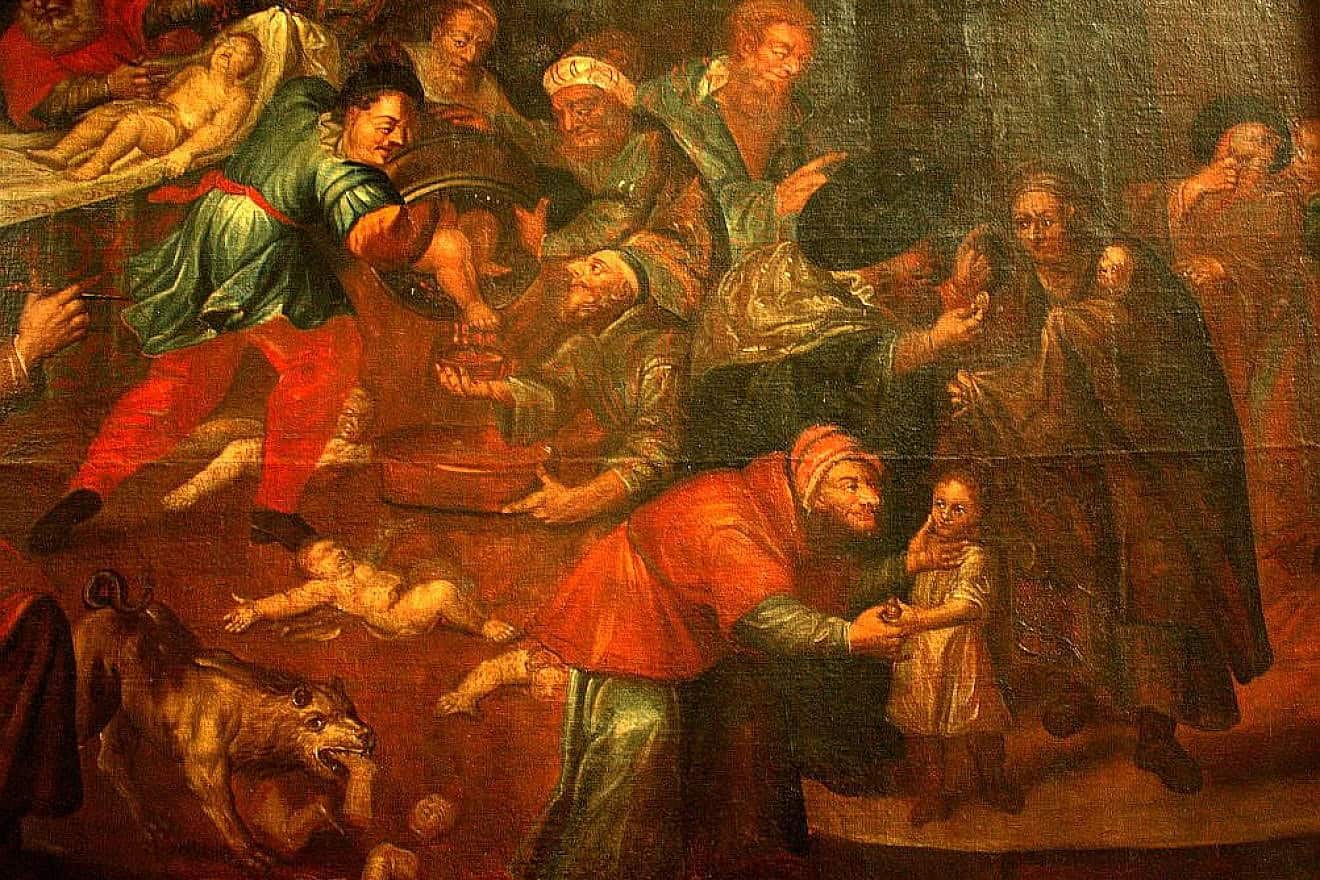This past Wednesday was the 20th of Sivan, which was once a fast day that commemorated the first violent blood libel. (The Vaad Arba Aratzot later redesignated it to commemorate the Cossack massacres of 1648-1649.)
In 1144, 12-year-old William of Norwich was found murdered. In 1149, a Knight named Simon, on trial for murdering Eleazar, a wealthy Jew to whom he owed money, claimed in his defense that Eleazar and the Jewish community had murdered William as an act of ritual murder.
The defense won the case.
A local monk, Thomas of Monmouth, then published a book about the supposed “murder” of William of Norwich. He claimed that Jews engage in the ritual murder of Christian children in order to return to Israel. He wrote:
“As a proof of the truth and credibility of the matter we now adduce something which we have heard from the lips of Theobald, who was once a Jew and afterwards a monk. He verily told us that in the ancient writings of his fathers, it was written that the Jews, without the shedding of human blood, could neither obtain their freedom nor could they ever return to their fatherland. Hence it was laid down by them in ancient times that every year they must sacrifice a Christian in some part of the world to the Most High God in scorn and contempt of Christ that so they might avenge their sufferings on Him; inasmuch as it was because of Christ’s death that they had been shut out from their own country and were in exile as slaves in a foreign land.”
Thomas of Monmouth’s blood libel circulated through Europe for nearly two decades. Then, in 1171, it became deadly. In Blois, France, a Jew and a Christian brought their horses to drink from the river. The Jew dropped an untanned hide and the horse of the Christian jumped. The Christian then claimed that the Jew had dropped a murdered baby into the river.
Count Thibault, the local ruler (and brother-in-law of the French King Louis VII) claimed that the Jewish community had committed a ritual murder. The judicial proceedings, which were based on a bizarre trial by ordeal, found the Jews guilty, even without a body or an alleged victim.
And 32 Jews were burned at the stake.
Rabbeinu Yaakov Tam, the great rabbinic leader and grandson of Rashi, then declared the 20th of Sivan a fast day. (He was 71 at the time and died a few weeks later.)
Declaring a new fast for the murdered in Blois was a major statement. No fast had been declared for the First and Second Crusades, which resulted in thousands of deaths. Rabbeinu Tam himself nearly died in the Second Crusade, but he realized that what happened in Blois was even worse. He recognized that the blood libel was a lethal form of propaganda and would cause centuries of trouble. And he was right.
E.M. Rose wrote an exceptional book on this topic, The Murder of William of Norwich: The Origins of the Blood Libel in Medieval Europe. She explained that the blood libel was unique in several ways.
First, it was a theory that originated and was embraced among the educated elite, not just the unwashed masses. She wrote: “This supposed ‘irrational,’ ‘bizarre,’ ‘literary trope’ was the product of lucid, cogent arguments, thoughtfully and carefully debated in executive councils, judged in detail by sober men who were not reacting under pressure to thoughtless mob violence.”
The original blood libel started with the intelligentsia and became well-accepted.
A second element she points out is that the blood libel put every Jew on trial: “Jewish identity was on trial, rather than any single individual perpetrator.”
Every Jew was guilty until proven innocent.
The 20th of Sivan is sadly once again an important date in 2024. Once again, Israel is guilty until proven innocent. Even a hostage rescue is immediately treated as a wanton massacre of innocent civilians until Israel provides video evidence to the contrary.
Once again, leading the charge against Israel are some well-educated people—professors and students at elite universities who, in their hatred of Israel, are eager to support a group of fanatical, depraved murderers. And like Thomas of Monmouth, the testimony of individual Jews, no matter how tainted, is taken to support horrific falsehoods.
The libel of Jewish ritual murder was accepted by some of the most educated people. And that opened the door to widespread violence.
Medieval antisemites believed awful things about Jews, and that gave them license to do awful things to Jews.
But one more point: The 20th of Sivan also marks exceptional heroism. The 32 Jews who were murdered in Blois died with their heads held high.
Ephraim of Bonn, the great medieval chronicler of antisemitic persecution, wrote, “It was also reported in that letter that as the flames mounted high, the martyrs began to sing in unison a melody that began softly but ended with a full voice. The Christian people came and asked us ‘What kind of a song is this for we have never heard such a sweet melody?’ We knew it well, for it was the song: ‘It is incumbent upon us to praise the Lord of all.’”(“Aleinu” on the High Holidays is sung with a special melody.)
These martyrs died singing “Aleinu.”
This is what defiance looks like.
We are the descendants of those Jews. And we too will hold our heads high and defy Hamas and its slandering sycophants.


























